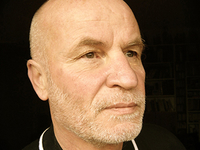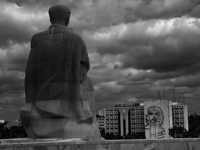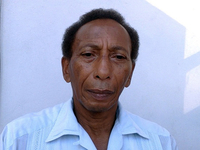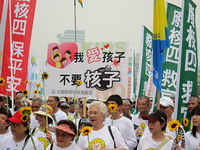GD 5.4 - December 2015
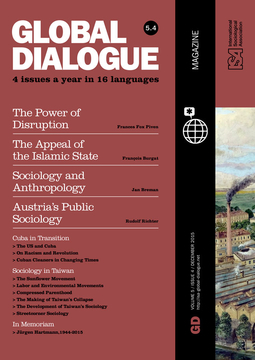
Global Dialogue is available in multiple languages!
Select the language to download the issue.
Editors:
Michael Burawoy.
Associate Editor:
Gay Seidman.
Managing Editors:
Lola Busuttil, August Bagà.
Consultants:
Ana Villarreal.
Media Consultant:
Gustavo Taniguti.
Consulting Editors:
Margaret Abraham, Markus Schulz, Sari Hanafi, Vineeta Sinha, Benjamin Tejerina, Rosemary Barbaret, Izabela Barlinska, Dilek Cindoğlu, Filomin Gutierrez, John Holmwood, Guillermina Jasso, Kalpana Kannabiran, Marina Kurkchiyan, Simon Mapadimeng, Abdul-mumin Sa’ad, Ayse Saktanber, Celi Scalon, Sawako Shirahase, Grazyna Skapska, Evangelia Tastsoglou, Chin-Chun Yi, Elena Zdravomyslova.
REGIONAL EDITORS
Arab World: Sari Hanafi, Mounir Saidani.
Brazil: Gustavo Taniguti, Andreza Galli, Ângelo Martins Júnior, Lucas Amaral, Rafael de Souza, Benno Alves, Julio Davies.
Colombia: María José Álvarez Rivadulla, Sebastián Villamizar Santamaría, Andrés Castro Araújo.
India: Ishwar Modi, Rashmi Jain, Pragya Sharma, Jyoti Sidana, Nidhi Bansal, Pankaj Bhatnagar.
Indonesia: Kamanto Sunarto, Hari Nugroho, Lucia Ratih Kusumadewi, Fina Itriyati, Indera Ratna Irawati Pattinasarany, Benedictus Hari Juliawan, Mohamad Shohibuddin, Dominggus Elcid Li, Antonius Ario Seto Hardjana.
Iran: Reyhaneh Javadi, Abdolkarim Bastani, Niayesh Dolati, Mohsen Rajabi, Vahid Lenjanzade.
Japan: Satomi Yamamoto, Fuma Sekiguchi, Shinsa Kameo, Kanako Matake, Kaho Miyahara, Yuki Nakano, Yutaro Shimokawa, Sakiye Yoshioka.
Kazakhstan: Aigul Zabirova, Bayan Smagambet, Daurenbek Kuleimenov, Gani Madi, Almash Tlespayeva.
Poland: Jakub Barszczewski, Mariusz Finkielsztein, Weronika Gawarska, Krzysztof Gubański, Kinga Jakieła, Justyna Kościńska, Martyna Maciuch, Mikołaj Mierzejewski, Karolina Mikołajewska-Zając, Adam Müller, Patrycja Pendrakowska, Zofia Penza, Teresa Teleżyńska, Anna Wandzel, Justyna Zielińska, Jacek Zych.
Romania: Cosima Rughiniș, Corina Brăgaru, Costinel Anuța, Telegdy Balasz, Adriana Bondor, Roxana Bratu, Ramona Cantaragiu, Alexandra Ciocănel, Alexandru Duțu, Ruxandra Iordache, Mihai-Bogdan Marian, Ramona Marinache, Anca Mihai, Radu Năforniță, Oana-Elena Negrea, Diana Tihan, Elisabeta Toma, Elena Tudor, Carmen Voinea.
Russia: Elena Zdravomyslova, Lubov Chernyshova, Anastasija Golovneva, Anna Kadnikova, Asja Voronkova.
Taiwan: Jing-Mao Ho.
Turkey: Gül Çorbacıoğlu, Irmak Evren.
GD 5.4 - December 2015
Editorial
Interdisciplinarity and the Disciplines
This issue opens with two interviews. The first is with Frances Fox Piven, one of the most remarkable scholars in the history of US sociology. Her dedication to such issues as welfare rights, voter registration and most recently the Occupy Movement has informed her original analysis of social movements, calling attention to the power of insurgency. Over her long career she has fearlessly entered debates with such figures as Milton Friedman and, at the same time, borne the brunt of hostility from right-wing pundits. The second interview is with the French Middle East expert, François Burgat, who explains the appeal of the Islamic State to European Muslims, subjected to racist exclusion in their home country. Then follows an article by Jan Breman, the famous Dutch sociologist of the informal economy, who here disentangles the complex relation between anthropology and sociology. All three social scientists have a foot in sociology, but in dealing with public issues they demonstrate that disciplinary boundaries are unimportant by drawing on political science, anthropology and history as well as sociology.
The same is true of our contributors to the special section on Cuba. Luis Rumbaut and Rubén Rumbaut reflect on the historic agreement between Cuba and the US, drawing attention to the cumulative geopolitical and economic pressures that led to the rapprochement, while Luisa Steur considers its meaning from the standpoint of low-paid cleaners. Cognizant of the Soviet transition to the market economy, she sees how a similar shift in Cuba deepens inequalities that previously had been kept in check. In the following article, Luisa Steur interviews Afro-Cuban activist, Norberto Carbonell, who is loyal to the party but speaks openly of racism in Cuba. Publishing such an interview might not have been possible even a year ago.
But interdisciplinarity requires disciplines and sociology develops in national containers even as it is influenced by global fields – a point underlined by the six articles from Taiwan. This small island, suspended between China and the US, with a history of turbulent social movements has spawned one of the most vibrant sociologies in Asia. A nation sensitive to geopolitics, with a history of subjugation, has stimulated novel approaches to global sociology. Furthermore, many of our Taiwanese contributors participated in the democracy movement of the 1990s, and, thus, developed distinctive perspectives on social movements. As the articles show, the recent Sunflower Movement brought sociology and its critical visions into the national limelight, engaging publics beyond the academy.
Public sociology is also the theme of Rudolf Richter’s account of the history of Austrian sociology. His article is the first of a series that will introduce members of the ISA to the Third Forum of Sociology to be held in Vienna, July 10-14, 2016. The local organizing committee has been actively preparing an Austrian feast with its own blog http://isaforum2016.univie.ac.at/blog/
Michael Burawoy, editor of Global Dialogue
Global Dialogue can be found in multiple languages.
Submissions should be sent to globaldialogue@isa-sociology.org.


